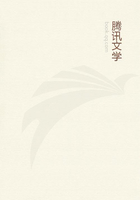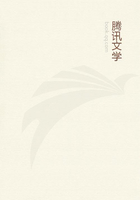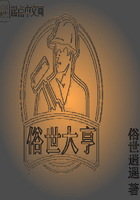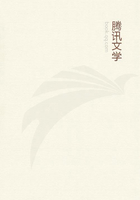On the sculptures he is seen accompanying him in the form of a circle provided with wings, in which is shown sometimes a full-length figure of the god in human form, sometimes the upper part only, facing towards and drawing his bow against the foe.In consequence of its general appearance, the image of the god has been likened to the sun in eclipse, the far-stretching wings being thought to resemble the long streamers visible at the moment of totality, and it must be admitted as probable that this may have given the idea of the symbol shown on the sculptures.As a sun-god, and at the same time not the god ?ama?, he resembled the Babylonian Merodach, and was possibly identified with him, especially as, in at least one text, Bêltu (Bêltis) is described as his consort, which would possibly identify A??ur's spouse with Zer-pan?tum.The original form of his name would seem to have been Au?ar, "water-field," probably from the tract where the city of A??ur was built.His identification with Merodach, if that was ever accepted, may have been due to the likeness of the word to Asari, one of that deity's names.The pronunciation A??ur, however, seems to have led to a comparison with the An?ar of the first tablet of the Creation-story, though it may seem strange that the Assyrians should have thought that their patron-god was a deity symbolising the "host of heaven." Nevertheless, the Greek transcription of An?ar, namely, /Assoros/, given by Damascius, certainly strengthens the indications of the ideograph in this matter.Delitzsch regards the word A??ur, or A?ur, as he reads it, as meaning "holy," and quotes a list of the gods of the city of Nineveh, where the word A??ur occurs three times, suggesting the exclamation "holy, holy, holy," or "the holy, holy, holy one." In all probability, however, the repetition of the name three times simply means that there were three temples dedicated to A??ur in the cities in question.[*] Jastrow agrees with Delitzsch in regarding A?ur as another form of A?ir (found in early Cappadocian names), but he translates it rather as "overseer" or "guardian" of the land and the people--the terminationless form of /a?iru/, which has this meaning, and is applied to Merodach.
[*] Or there may have been three shrines to A??ur in each temple referred to.
As the use of the characters /An-?ar/ for the god A??ur only appears at a late date (Jastrow says the eighth century B.C.), this would seem to have been the work of the scribes, who wished to read into the name the earlier signification of An?ar, "the host of heaven," an explanation fully in accord with Jastrow's reasonings with regard to the nature of the deity.As he represented no personification or power of nature, he says, but the general protecting spirit of the land, the king, the army, and the people, the capital of the country could be transferred from A??ur to Calah, from there back to A??ur, and finally to Nineveh, without affecting the position of the protecting god of the land in any way.He needed no temple--though such things were erected to him--he had no need to fear that he should suffer in esteem by the preference for some other god.As the embodiment of the spirit of the Assyrian people the personal side of his being remained to a certain extent in the background.If he was the "host of heaven," all the deities might be regarded as having their being in him.
Such was the chief deity of the Assyrians--a national god, grafted on to, but always distinct from, the rest of the pantheon, which, as has been shown, was of Babylonian origin, and always maintained the characteristics and stamp of its origin.
The spouse of A??ur does not appear in the historical texts, and her mention elsewhere under the title of Bêltu, "the lady," does not allow of any identification being made.In one inscription, however, A??uritu is called the goddess, and A??ur the god, of the star Sib-zi-anna, identified by Jensen with Regulus, which was apparently the star of Merodach in Babylonia.This, however, brings us no nearer, for A??uritu would simply mean "the Assurite (goddess)."The minor divinities.
Among the hundreds of names which the lists furnish, a few are worthy of mention, either because of more than ordinary interest, or in consequence of their furnishing the name of some deity, chief in its locality, but identified elsewhere with one of the greater gods.
Aa.--This may be regarded either as the god êa (though the name is written differently), or as the sun-god assuming the name of his consort; or (what is, perhaps, more probable) as a way of writing A'u or Ya'u (the Hebrew Jah), without the ending of the nominative.This last is also found under the form /Aa'u/, /ya'u/, /yau/, and /ya/.
Abil-addu.--This deity seems to have attained a certain popularity in later times, especially among immigrants from the West.As "the son of Hadad," he was the equivalent of the Syrian Ben-Hadad.A tablet in New York shows that his name was weakened in form to /Ablada/.
Aku, the moon-god among the heavenly bodies.It is this name which is regarded as occurring in the name of the Babylonian king Eri-Aku, "servant of the moon-god," the biblical Arioch (Gen.xiv.).
Amma-an-ki, êa or Aa as lord of heaven and earth.
Amna.--A name only found in a syllabary, and assigned to the sun-god, from which it would seem that it is a form of the Egyptian Ammon.
Anunitum, the goddess of one of the two Sippars, called Sippar of Anunitum, who was worshipped in the temple ê-ulma? within the city of Agadé (Akkad).Sayce identifies, on this account, these two places as being the same.In a list of stars, Anunitum is coupled with ?inunutum, which are explained as (the stars of) the Tigris and Euphrates.These were probably names of Venus as the morning and evening (or evening and morning) star.
Apsu.--The deep dissociated from the evil connection with Tiawath, and regarded as "the house of deep wisdom," i.e.the home of the god êa or Aa.















